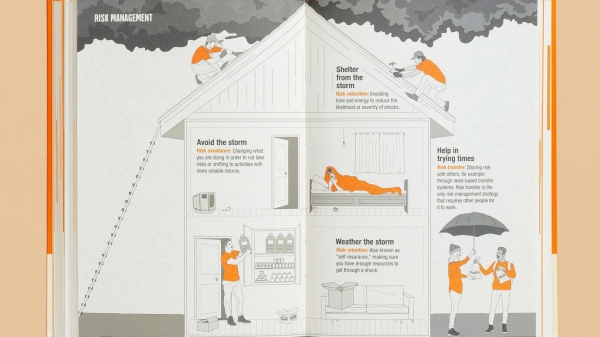ASU researchers identify role for inflammatory marker in cognitive decline tied to childhood abuse

Mary Davis, professor of psychology and lead author on the study.
As many as 30 to 50 percent of adults experienced abuse or neglect when they were children. Such abuse can lead to physical and mental health problems and even cognitive deficits in adulthood.
In a paper published in the January 2019 issue of Annals of Behavioral Medicine, researchers in the Arizona State University Department of Psychology explored the physiological and psychological factors related to childhood abuse that might contribute to cognitive decline in adults.
“Abuse early in life is linked to a number of negative health outcomes in older age, including metabolic diseases, depressive symptoms and cognitive decline, prompting us to look at whether intervening physical and psychological health problems related to childhood abuse predict cognitive dysfunction of older adults,” said Mary Davis, professor of psychology and lead author on the study.
Understanding the physiological and psychological pathways by which childhood abuse affects adults can lead to interventions geared toward changing negative health outcomes.
Measuring the subtle effects of abuse, decades later
Childhood abuse can have a long-term influence on the stress responses in the brain and body, which could indirectly lead to cognitive decline decades later. The researchers tested whether early abuse predicted later markers of risk for metabolic diseases like diabetes, depressive symptoms and/or levels of inflammation in the body, and whether these risk factors were related to cognitive dysfunction in aging adults.
The participants were ethnically and socioeconomically diverse adults ages 40 to 65 currently living in the Phoenix metropolitan area. The research team had the participants complete a series of surveys about their childhood and their health experiences to date. The surveys included questions about whether the participants had experienced childhood abuse and whether they were currently experiencing or had experienced depressive symptoms or memory problems associated with cognitive decline.
The research team also visited each participant in their home to collect measurements of their physical health. The team measured the waist circumference, blood pressure and the height and weight of each participant, because these measurements can be used to predict whether someone has, or is at risk for, metabolic diseases like diabetes. The team also collected a blood sample from each participant, to measure the amount of a molecule called interleukin-6. This molecule is part of the immune system’s inflammatory response for illness and injury, but also can remain chronically elevated even after an illness or injury heals.
Blood levels of inflammation and depressive symptoms predicted cognitive decline
The survey the researchers used to measure cognitive decline is a simple and reliable tool called the Telephone Inventory for Cognitive Status, and it showed that about 5 percent of the participants had mild cognitive impairment, even though the participant age range was relatively young, from 40 to 65.
The researchers used a mathematical model to test whether childhood abuse was related to the risk for metabolic disease, depressive symptoms or blood levels of inflammation, and whether each of these risk factors was related to cognitive decline. Childhood abuse was related to higher levels of all three aspects of physical and psychological health. But it was interleukin-6 that explained the link between the experience of childhood abuse and poorer cognitive performance. Davis and the research team found the same pattern for depressive symptoms.
“Interleukin-6 and depressive symptoms both served as mediators of the link between childhood abuse and poorer cognitive performance, suggesting both physiological and psychological changes that fuel the cognitive dysfunction we see in older adults who have been abused as children” said Davis, who runs ASU’s Emotion Regulation and Health lab. “These two mediators represent at least part of the reason people who are abused early in life suffer from cognitive decline.”
The amount of interleukin-6 measured from a participant’s blood was also related to whether they had depressive symptoms, suggesting that depressive symptoms and levels of inflammation in the body might feed into each other.
The risk for metabolic diseases was also associated with childhood abuse but did not predict cognitive decline. About 37 percent of the participants met the criteria for having metabolic disease, a percentage that is comparable to the disease rate in the general population. Because the age range of the participants was 40 to 65 years, Davis said the effects of metabolic diseases on cognitive performance might emerge as individuals age into older adulthood.
“It is easy to discount the enduring impact of childhood abuse, but lots of evidence suggests that it is not ‘over and done’” Davis said. “Childhood abuse can have longstanding and subtle implications for how people age and can show up decades later physiologically, psychologically and in terms of cognitive processing.”
Kathryn Lemery-Chalfant and Linda Luecken of the ASU Department of Psychology also contributed to the study along with Ellen Yeung from the University of Missouri and Michael Irwin from the University of California, Los Angeles. The late Alex Zautra, ASU Foundation Professor of clinical health and psychology, also contributed to the study.
The study was funded by the National Institute on Aging, the Eunice K. Shriver National Institute of Child Health and Human Development, and the National Institute on Alcohol Abuse and Alcoholism. The content is solely the responsibility of the authors and does not necessarily reflect the official views of the National Institute of Health.
More Science and technology

ASU author puts the fun in preparing for the apocalypse
The idea of an apocalypse was once only the stuff of science fiction — like in “Dawn of the Dead” or “I Am Legend.” However…

Meet student researchers solving real-world challenges
Developing sustainable solar energy solutions, deploying fungi to support soils affected by wildfire, making space education more…

Miss Arizona, computer science major wants to inspire children to combine code and creativity
Editor’s note: This story is part of a series of profiles of notable spring 2024 graduates. “It’s bittersweet.” That’s how…